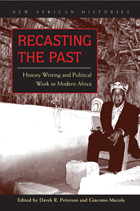
In the world history of writing, Japan presents an unusually detailed record of transition to literacy. Extant materials attest to the social, cultural, and political contexts and consequences of the advent of writing and reading, from the earliest appearance of imported artifacts with Chinese inscriptions in the first century BCE, through the production of texts within the Japanese archipelago in the fifth century, to the widespread literacies and the simultaneous rise of a full-fledged state in the late seventh and eighth centuries.
David B. Lurie explores the complex processes of adaptation and invention that defined the early Japanese transition from orality to textuality. Drawing on archaeological and archival sources varying in content, style, and medium, this book highlights the diverse modes and uses of writing that coexisted in a variety of configurations among different social groups. It offers new perspectives on the pragmatic contexts and varied natures of multiple simultaneous literacies, the relations between languages and systems of inscription, and the aesthetic dimensions of writing. Lurie’s investigation into the textual practices of early Japan illuminates not only the cultural history of East Asia but also the broader comparative history of writing and literacy in the ancient world.

The study of intellectual history in Africa is in its infancy. We know very little about what Africa’s thinkers made of their times. Recasting the Past brings one field of intellectual endeavor into view. The book takes its place alongside a small but growing literature that highlights how, in autobiographies, historical writing, fiction, and other literary genres, African writers intervened creatively in their political world.
The past has already been worked over by the African interpreters that the present volume brings into view. African brokers—pastors, journalists, kingmakers, religious dissidents, politicians, entrepreneurs all—have been doing research, conducting interviews, reading archives, and presenting their results to critical audiences. Their scholarly work makes it impossible to think of African history as an inert entity awaiting the attention of professional historians. Professionals take their place in a broader field of interpretation, where Africans are already reifying, editing, and representing the past.
The essays collected in Recasting the Past study the warp and weft of Africa’s homespun historical work. Contributors trace the strands of discourse from which historical entrepreneurs drew, highlighting the sources of inspiration and reference that enlivened their work. By illuminating the conventions of the past, Africa’s history writers set their contemporary constituents on a path toward a particular future. History writing was a means by which entrepreneurs conjured up constituencies, claimed legitimate authority, and mobilized people around a cause. By illuminating the spheres of debate in which Africa’s own scholars participated, Recasting the Past repositions the practice of modern history.
READERS
Browse our collection.
PUBLISHERS
See BiblioVault's publisher services.
STUDENT SERVICES
Files for college accessibility offices.
UChicago Accessibility Resources
home | accessibility | search | about | contact us
BiblioVault ® 2001 - 2024
The University of Chicago Press









